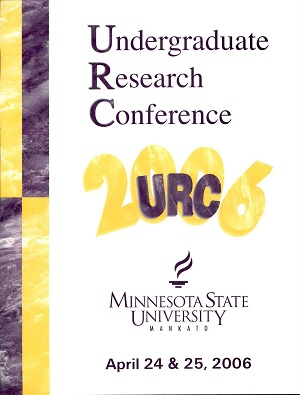Supreme Court's Error in 2002 Decision Makes for Unconstitutional Monetary Giveaway
Location
CSU 284
Start Date
24-4-2006 3:15 PM
End Date
24-4-2006 5:00 PM
Student's Major
Philosophy
Student's College
Arts and Humanities
Mentor's Name
Craig Matarrese
Mentor's Department
Philosophy
Mentor's College
Arts and Humanities
Description
My thesis is that the Supreme Court made in an error in judgment in Zelman v. Simmons-Harris. I propose to support my thesis with two separate steps. First, I will make an analysis of all of the concurring and dissenting opinions. Second, I will create three sound arguments amongst this by examining all of the arguments individually. Furthermore, I will conclude that the Supreme Court's decision on the Program at hand fails the test of Constitutionality. It fails this test because it directly funded thousands of children every year to learn religious indoctrination. It has not been helping a disabled child learn, or allowed a child to get to school on a bus. It has been directly giving more than enough money for that child to choose a school of religion, since, with the Program at hand, that will be the only thing the child can afford. It is unconstitutional to allow one religion preference over another, and that is what has happened with Zelman v. Simmons-Harris. Thus, I will be arguing that the decision over the governmental supply of monetary funds to religious schools in Cleveland, Ohio, which was decided in Zelman v. Simmons-Harris, was unconstitutional.
Supreme Court's Error in 2002 Decision Makes for Unconstitutional Monetary Giveaway
CSU 284
My thesis is that the Supreme Court made in an error in judgment in Zelman v. Simmons-Harris. I propose to support my thesis with two separate steps. First, I will make an analysis of all of the concurring and dissenting opinions. Second, I will create three sound arguments amongst this by examining all of the arguments individually. Furthermore, I will conclude that the Supreme Court's decision on the Program at hand fails the test of Constitutionality. It fails this test because it directly funded thousands of children every year to learn religious indoctrination. It has not been helping a disabled child learn, or allowed a child to get to school on a bus. It has been directly giving more than enough money for that child to choose a school of religion, since, with the Program at hand, that will be the only thing the child can afford. It is unconstitutional to allow one religion preference over another, and that is what has happened with Zelman v. Simmons-Harris. Thus, I will be arguing that the decision over the governmental supply of monetary funds to religious schools in Cleveland, Ohio, which was decided in Zelman v. Simmons-Harris, was unconstitutional.
Recommended Citation
Rolfsrud, Bailey Breck. "Supreme Court's Error in 2002 Decision Makes for Unconstitutional Monetary Giveaway." Undergraduate Research Symposium, Mankato, MN, April 24, 2006.
https://cornerstone.lib.mnsu.edu/urs/2006/oral-session-I/4




